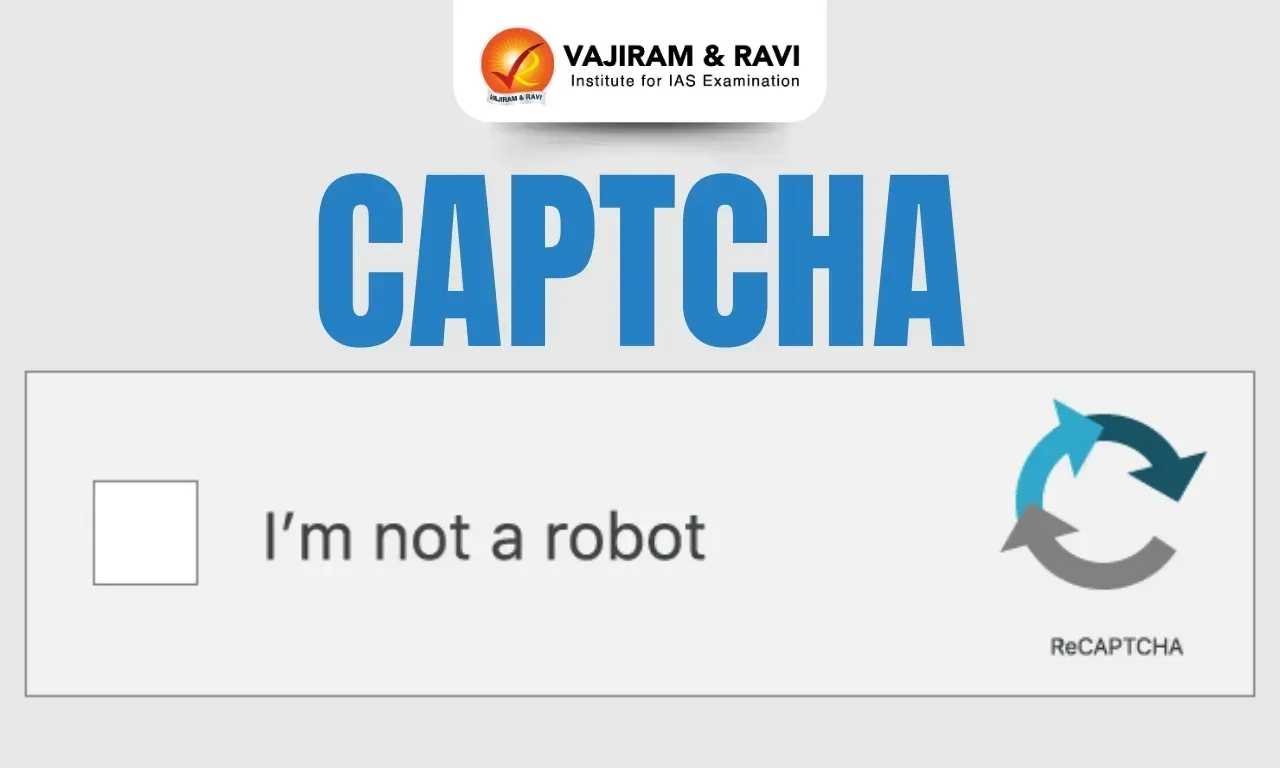CAPTCHA Latest News
CAPTCHA is a crucial security tool to verify human users and protect websites from bots, but faces challenges.
About CAPTCHA
- CAPTCHA stands for the Completely Automated Public Turing test to tell Computers and Humans Apart.
- The term “Turing test” is central to CAPTCHAs.
- A Turing test evaluates a computer’s capacity to simulate human behavior.
- In 1950, Alan Turing, an early pioneer of computing and artificial intelligence (AI), created the Turing test.
- A computer program “passes” the Turing test if its actions throughout the test cannot be distinguished from that of a person, i.e., if it behaves as a human would.
- A Turing test is not based on answering questions correctly; rather, it is concerned with how “human” the responses seem, irrespective of whether they are accurate.
- CAPTCHAs are tools you can use to differentiate between real users and automated users, such as bots.
- CAPTCHAs provide challenges that are difficult for computers to perform but relatively easy for humans.
- For example, a CAPTCHA may ask the user to enter the characters displayed in a blurred image or identify all of the images in a grid that contain a traffic light.
- Some newer CAPTCHAs ask the user to click in a box stating that they are not a robot and use various metrics to differentiate between human and automated visitors.
- CAPTCHAs are used by any website that wishes to restrict usage by bots.
CAPTCHA FAQs
Q1. What does CAPTCHA stand for?
Ans. Completely Automated Public Turing test to tell Computers and Humans Apart
Q2. What is the main purpose of CAPTCHA?
Ans. To distinguish humans from automated bots
Q3. CAPTCHAs are based on which fundamental computer science concept?
Ans. Turing test
Source: TH
Last updated on July, 2025
→ UPSC Notification 2025 was released on 22nd January 2025.
→ UPSC Prelims Result 2025 is out now for the CSE held on 25 May 2025.
→ UPSC Prelims Question Paper 2025 and Unofficial Prelims Answer Key 2025 are available now.
→ UPSC Calendar 2026 is released on 15th May, 2025.
→ The UPSC Vacancy 2025 were released 1129, out of which 979 were for UPSC CSE and remaining 150 are for UPSC IFoS.
→ UPSC Mains 2025 will be conducted on 22nd August 2025.
→ UPSC Prelims 2026 will be conducted on 24th May, 2026 & UPSC Mains 2026 will be conducted on 21st August 2026.
→ The UPSC Selection Process is of 3 stages-Prelims, Mains and Interview.
→ UPSC Result 2024 is released with latest UPSC Marksheet 2024. Check Now!
→ UPSC Toppers List 2024 is released now. Shakti Dubey is UPSC AIR 1 2024 Topper.
→ Also check Best IAS Coaching in Delhi















